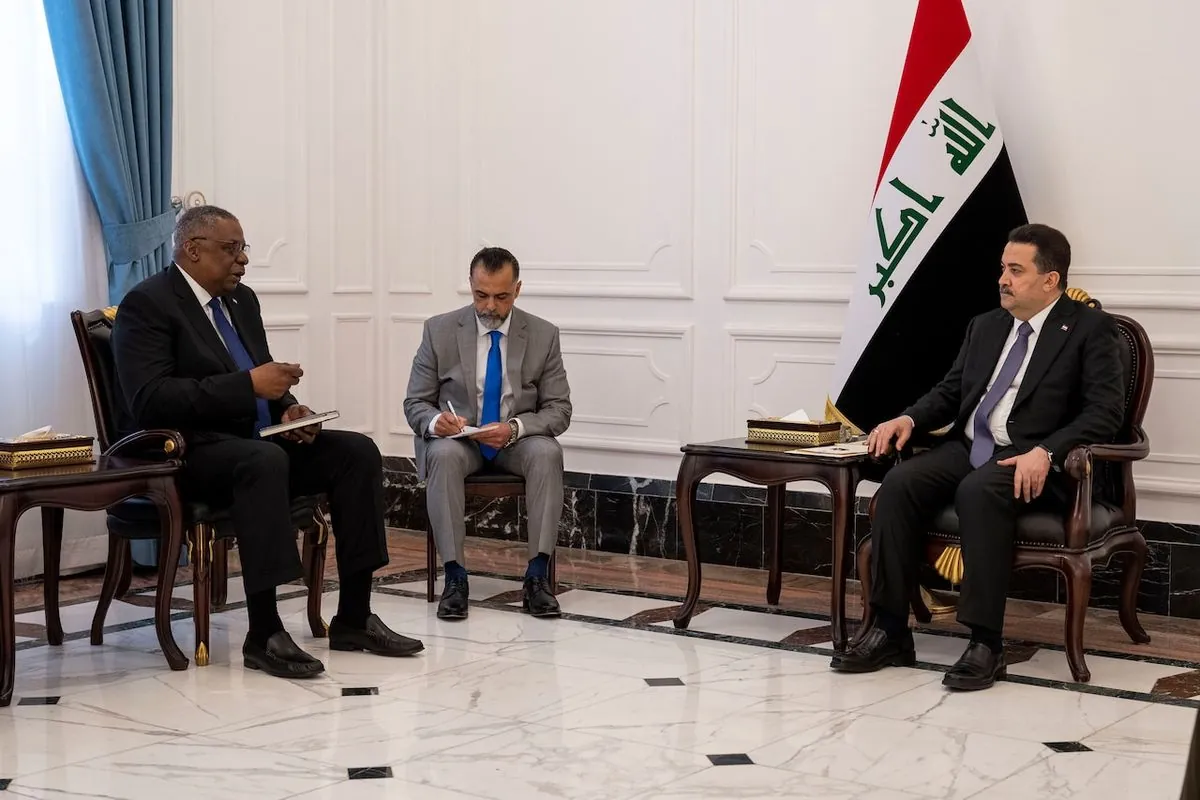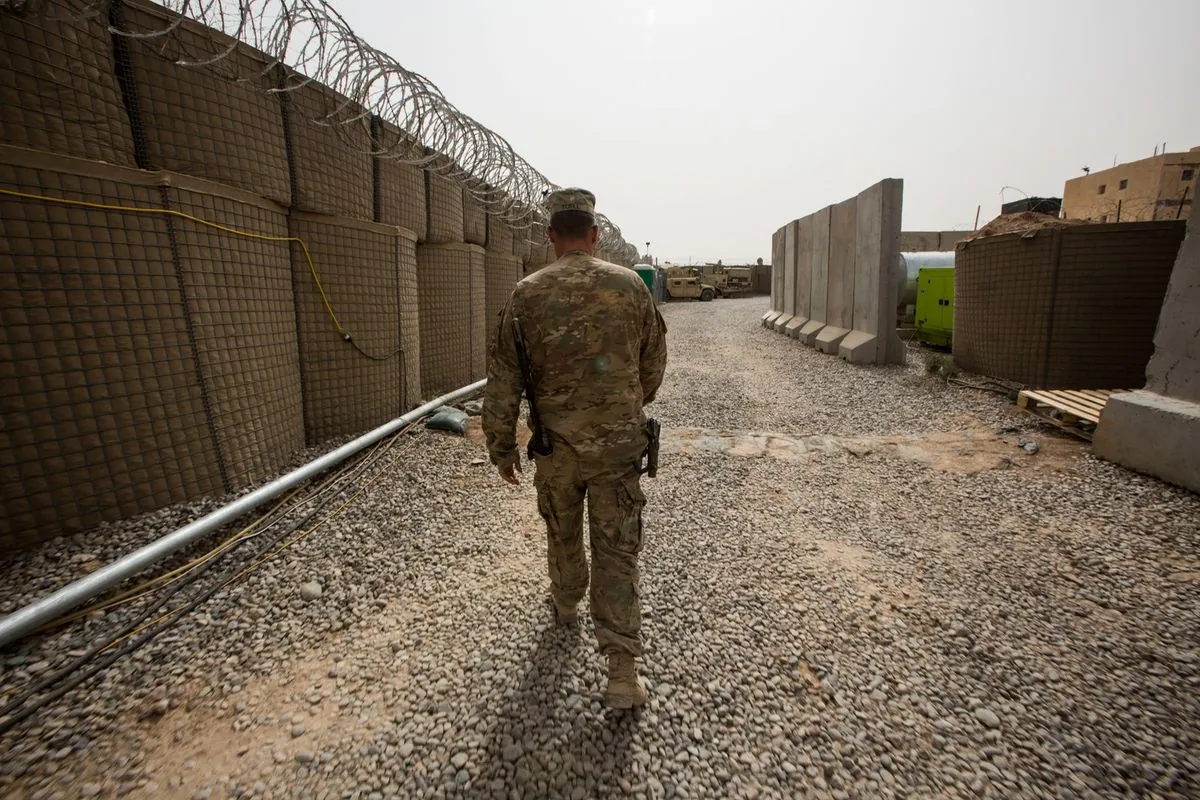Iraq Delays Announcement on U.S.-Led Coalition Mission End Date
Iraq postpones revealing the end date for the U.S.-led coalition mission due to recent developments. Discussions on troop withdrawal continue as Iraq balances relations with the U.S. and Iran.

Iraq's foreign ministry has announced a delay in revealing the end date for the U.S.-led coalition's mission in the country. The postponement is attributed to unspecified "latest developments," highlighting the complex nature of the ongoing negotiations.
The U.S.-Iraq Higher Military Commission, comprising officials from both nations, has been engaged in discussions regarding the withdrawal of advisers from military sites. According to the foreign ministry, only a few issues remain before reaching an agreement on concluding the coalition's presence in Iraq. These include settling on an announcement date and addressing logistical aspects.
Iraq's unique position as an ally to both the United States and Iran adds complexity to the situation. The country currently hosts 2,500 U.S. troops while also maintaining Iran-backed militias linked to its security forces. This delicate balance has been further strained by escalating tit-for-tat attacks since the outbreak of the Israel-Hamas conflict in Gaza in October 2023.

A recent incident on August 5, 2024, resulted in injuries to at least five U.S. personnel during an attack on a military base in Iraq. This event underscores the ongoing security challenges in the region.
Iraqi sources have indicated that the country aims for troops from the U.S.-led military coalition to begin withdrawing in September 2024, with a formal end to the coalition's work proposed for September 2025. It is anticipated that some U.S. forces may remain in a newly negotiated advisory capacity.
The U.S.-led coalition in Iraq, formed in 2014 to combat ISIS, has played a significant role in the country's recent history. Despite Iraq declaring victory over ISIS in December 2017, the coalition's presence has continued, evolving to meet new challenges and strategic needs.
Iraq's political landscape has seen significant changes since the coalition's formation. The country's parliament voted to expel foreign troops in January 2020, leading to strategic dialogues between the U.S. and Iraq later that year to discuss troop presence. The current Prime Minister, Mohammed Shia' Al Sudani, faces the task of navigating these complex international relationships.
The ongoing negotiations reflect Iraq's efforts to balance its security needs with its sovereignty. The Popular Mobilization Forces (PMF), which include Iran-backed militias, were formally incorporated into Iraq's security forces in 2016, adding another layer to the country's security apparatus.
As discussions continue, Iraq's role as a mediator between regional powers, such as Iran and Saudi Arabia, further emphasizes its strategic importance in the Middle East. The country's vast oil reserves, ranking fifth globally in proven reserves, underscore its economic significance and the international community's vested interest in its stability.
The path forward for Iraq involves careful diplomacy and strategic decision-making. As the nation works towards redefining its relationship with the U.S.-led coalition, it must also consider its economic future, with the oil sector accounting for about 95% of its foreign exchange earnings.
The coming months will be crucial in determining the future of international military presence in Iraq and the country's role in regional security dynamics.


































